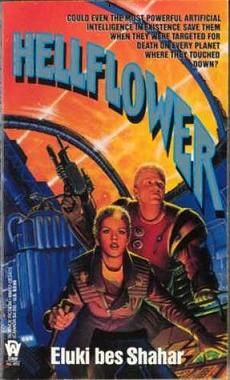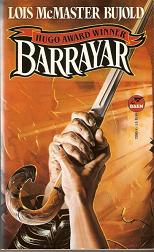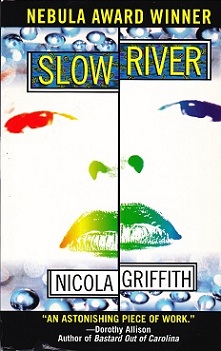
Hellflower
Eluki bes Shahar
252 pages
published in 1991
Eluki bes Shahar is a science fiction and fantasy writer better known as Rosemary Edghill, the form of her name she now prefers. She’s been active since the late eighties, starting her career writing straight romance novels, then moving on to science fiction and fantasy, most recently in collaboration with Mercedes Lackey. I think it’s fair to say she’s only been middling succesfull as a writer, somebody largely forgotten as an science fiction writer. The question is, is she worth rediscovering?
At first glance Hellflower seems to be a bog standard space opera or adventure sf story. Hardbitten female independent trader/starship captain rescues a young nob from a mugging, due to his honour he’s now in her debt, the same honour leads him to be scheduled for execution, she rescues him again, they take off from the planet guns blazing, he turns out to be more than just a young, bored noble and she’s in over her head. What makes Hellflower different from the several dozen other space opera stories with the same plot is the atmosphere of elegiac foredooming it takes place in. This particular caper might have a happy ending after all, but sooner or later the odds will catch up with our protagonist.

